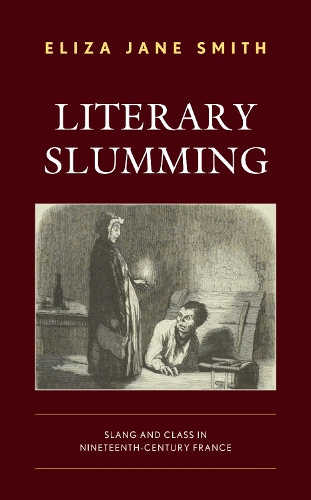
Literary Slumming: Slang and Class in Nineteenth-Century France
(Hardback)
Publishing Details
Literary Slumming: Slang and Class in Nineteenth-Century France
By (Author) Eliza Jane Smith
Bloomsbury Publishing PLC
Lexington Books
6th August 2021
United States
Classifications
Professional and Scholarly
Non Fiction
840.9007
Physical Properties
Hardback
298
Width 161mm, Height 229mm, Spine 24mm
653g
Description
Literary Slumming: Slang and Class in Nineteenth-Century France applies a sociolinguistic approach to the representation of slang in French literature and dictionaries to reveal the ways in which upper-class writers, lexicographers, literary critics, and bourgeois readers participated in a sociolinguistic concept the author refers to as literary slumming, or the appropriation of lower-class and criminal language and culture. Through an analysis of spoken and embodied manifestations of the anti-language of slang in the works of Eugne Franois Vidocq, Honor de Balzac, Eugne Sue, Victor Hugo, the Goncourt Brothers, and mile Zola, Literary Slumming argues that the nineteenth-century French literary discourse on slang led to the emergence of this sociolinguistic phenomenon that prioritized lower-class and criminal life and culture in a way that ultimately expanded class boundaries and increased visibility and agency for minorities within the public sphere.
Author Bio
Eliza Jane Smith is assistant professor of French and Francophone studies at the University of San Diego.
